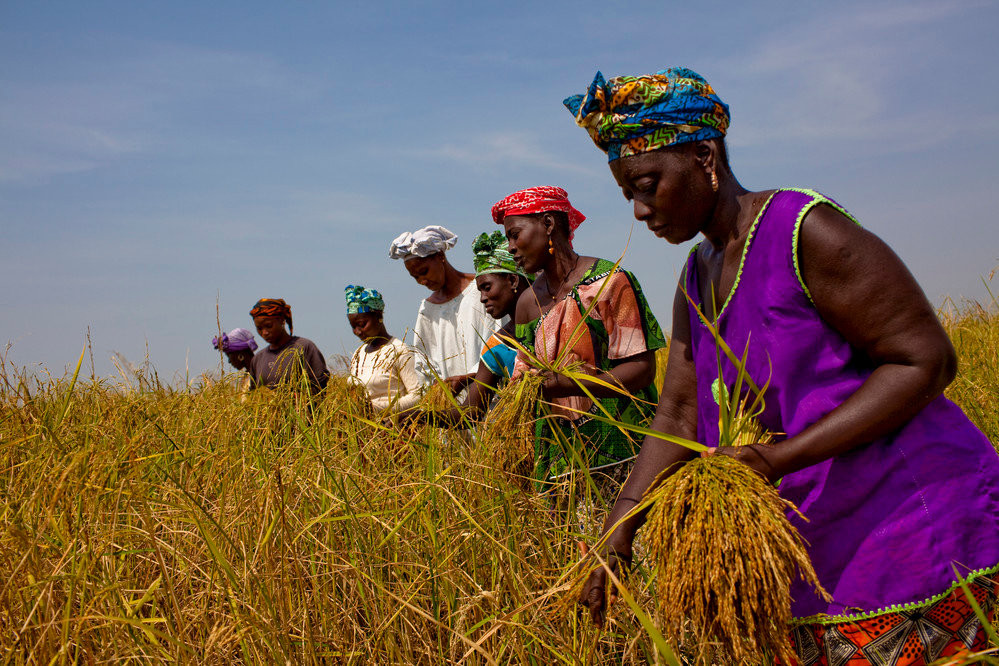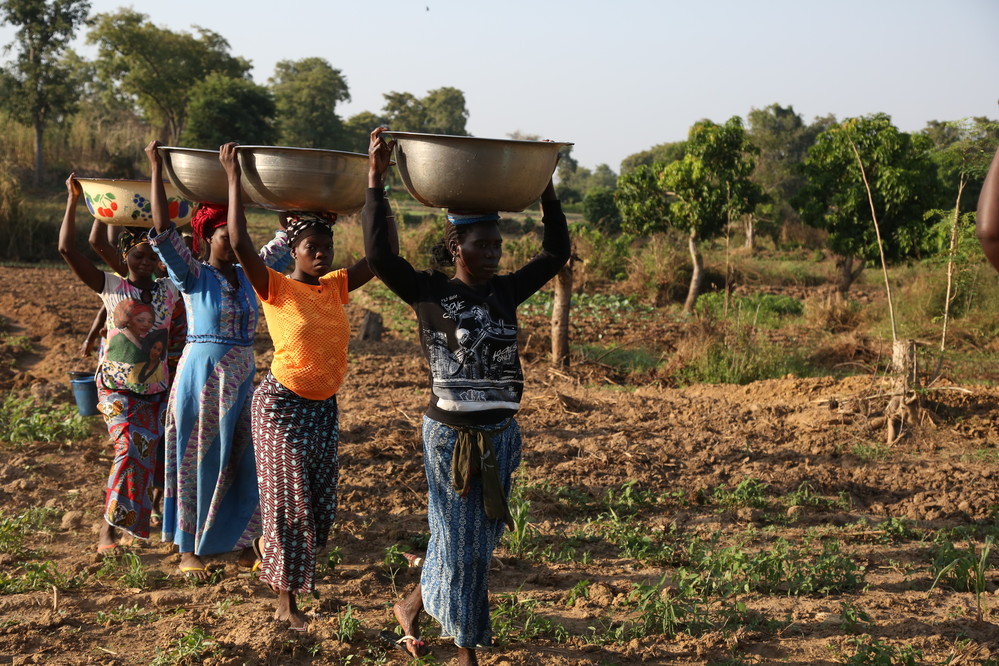This year, the Smallholder and Agri-SME Finance and Investment Network (SAFIN) conducted a survey on how farmers’ organizations in West Africa and Asia access finance, in close collaboration with the International Fund for Agricultural Development (IFAD) and the Farmers’ Organizations for Africa, Caribbean and Pacific (FO4ACP) programme. In October and November 2022, SAFIN, IFAD and FO4ACP hosted two consultations with the respondents and supporters of the 2022 survey who validated and helped interpret its initial results.

Photo: IFAD/Nana Kofi Acquah
Farmers’ organizations, including all forms of producer associations, cooperatives, unions and federations, play a significant role in the financial landscape of agricultural value chains. By aggregating small-scale farmers, they act as key intermediaries in providing access to inputs and markets, which generally depend on dedicated financial products or arrangements for the purchase and sale of goods. They also purchase products from their member farmers, sometimes providing advance payments and offering them other financial products and services such as emergency loans, savings and insurance. Farmers’ organizations require access to financing of their own to grow their operations and improve the quality of services they offer to farmers. However, like other agricultural SMEs, they often struggle to access funding that suits their needs, mainly due to the high cost and risk associated with servicing them.
In 2021, IFAD surveyed 45 farmers’ organizations in East Africa to better understand the gap in volume of finance and financial products that can be addressed through IFAD’s private sector investments. In 2022, SAFIN joined the initiative building on interest from its member institutions in scaling access to capital for farmers’ organizations and expanded the survey to cover West Africa and Asia and the Pacific. The 2022 survey was completed by 220 farmers’ organizations, many of which received active support from our members, particularly ACCESS Development Services (ACCESS) and the Asian Farmers’ Association for Sustainable Rural Development (AFA). The survey team organized two consultations with farmers’ organizations from Asia and West Africa for validation and to help interpret key findings.
A preference for working capital in Asia
On 27 October 2022, the Self Employed Women's Association (SEWA), the Philippine Family Farmers Agriculture Fishery Forestry Cooperatives Federation (Agricooph), AFA and other SAFIN members active in Asia discussed some of the key survey findings from the region. According to the survey, farmers’ organizations in India secured low volumes of finance overall and reported a high demand for working capital specifically. Surprisingly, they also cited a low gap between the amount of funding secured and the volume required for their activities. In contrast, farmers’ organizations in other Asian countries accessed higher volumes of finance and expressed a similar demand for working capital.
Participants at the consultation clarified that in India, local regulation requires banks to fund agriculture, allowing many farmers to access funding directly rather than relying on farmers’ organizations. Additionally, working capital is widely available across the countries surveyed in Asia, where local regulations are more flexible than in East and West Africa. For example, working capital tenors average at 24 months in Asia (compared to 12 months in Africa), which allows for a more versatile and long-term use of this product and reduces demand for alternatives.
A challenging but diverse funding landscape in West Africa
On 10 November 2022, representatives from AgriCord, Agricultural Services Producers' Organizations Project (ASPRODEB), ‘Agriculteurs Français et Développement International’ (AFDI) and IFAD attended the consultation on West Africa. The discussion depicted a challenging environment for farmers’ organizations in terms of accessing finance, particularly from traditional financial service providers (FSPs) who remain reluctant to engage in the agriculture sector.
This context explains a much higher financing gap in West Africa than in Asia- only 3% of organizations in West Africa reported accessing funding sources that met their needs according to the survey. Farmers’ organizations in the region also bare a higher cost to apply for funding, as they often need to rely on third-party service providers to craft convincing business proposals for financiers. In light of this, cooperatives in West Africa reported a wider range of sources of capital, including informal providers, to meet their needs.
An unmet demand for climate finance across regions
Participants also explained that much of the unmet demand for capital is linked to activities that respond to emergencies like climate change and the COVID-19 pandemic. The evidence also shows that while farmers’ organizations across regions undertake many climate-related activities such as reforestation and adaptation, they have very limited access to dedicated funding for these activities. Only 6 of the 220 cooperatives surveyed, 5 of which are based in Asia, accessed sources of green finance.
Attendees also highlighted that even when such funds are available, farmers’ organizations face challenges in aligning their intended use to the strict requirements imposed by funders. Ultimately, such organizations may prefer to rely on traditional sources of working capital for climate-related activities, given its flexibility and comparable cost.
A full report documenting the survey results will be released to the public in the first quarter of 2023.

